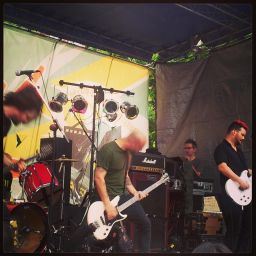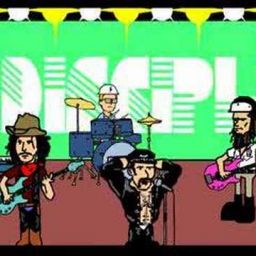
I’m not going to place a value judgment on this, though I know a common criticism of fan culture is that “the world would be a better place if [fans] would spend that kind of time/energy working on less frivolous projects: volunteering in the community, politics, etc. (Probably not 100% fair or accurate, and Henry Jenkins has already formulated a very eloquent response to that critique in Textual Poachers)
What I do know is that when it comes to using social media, fans are savvy about using social media to organize and motivate groups to action, and fan culture may be a useful lens for non-profit professionals using social media to view their own campaigns.
No really, hear me out.
Build proactive allies/supporters through social media, not just “volunteers”
Fans are pretty self-motivated when they are excited about something, they’ll spread the word about a band/TV show/movie/ book series they’re into without even needing to be prompted or instructed to do so. Take the The Leaky Cauldron, the Harry Potter-focused fan website that has grown to become a sophisticated fan news outlet and online community, with active forums, blogs, a weekly podcast and fan- organized conferences. All of this was done with the indirect blessing of Potter author J.K. Rowling.
Or consider the “Save Chuck” campaign. When NBC’s nerd-spy show Chuck was on the bubble for cancellation, fans started a grassroots campaign via social media to inform Chuck‘s parent network (NBC) and major sponsor (Subway) about the show’s fan support. Using Twitter, icons and badges, fans were mobilized to spread the word about Chuck online, and also used their fan power to raise money for The American Heart Association, a partner charity of Subway. The We Heart Chuck Campaign raised $10,000 for the AHA in one week, and Chuck was also saved in the process.
It’s about community, and it’s personal; consider giving people the tools to spread the word in their own way.
I think nothing gets a potential supporter jazzed quicker than feeling like they can DO SOMETHING NOW, even if it’s something small like posting a badge to their blog, or retweeting a message.
Some organizations seem to focus their social media efforts on acquisition: bringing traffic from Facebook to a website. But what about taking a “street team” approach to social media? That means giving supporters/volunteers the resources and space to spread the word themselves in the ways that they feel most comfortable and effective and to create their own communities of supporters with friends and family.
I’m not saying non-profits should give volunteers carte blanche to create their own online communities without any professional input. My point here is that fans took it upon themselves to create and build a community of support from the ground up, supplying fellow fans with the appropriate tools help to take their message viral.
So how can non-profits inject some of that spirit into their own social media efforts?








[…] few examples of how something small can gain momentum are put forth in The Learned Fangirl’s recent blog post. TLF has some excellent examples of how something small and seemingly […]
[…] concert video that was officially condoned and encouraged by Trent Reznor. We also talked about a fan-driven campaign that kept the NBC spy drama Chuck on the air (for at least this season) while managing to raise money for charity as […]